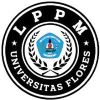Penguatan Literasi Digital Guru dan Siswa Sanggar Bimbingan Kampung Baru dan Kepong melalui Pembelajaran Holistik Berdiferensiasi Konten Digital
DOI:
https://doi.org/10.37478/abdika.v3i4.3413Abstract
The changing role of teachers as creative and innovative facilitators in solving problems in learning is a challenge for teachers who don't yet have good digital skills. Moreover, it is a challenging problem for the teachers who must dedicate to educate students in non-formal educational institutions that have limited digital learning facilities that support learning, such as the Tutoring Studio in Kuala Lumpur, Malaysia. Students' conditions are very diverse with complex socio-cultural problems. This has implications for the lack of technology integration in learning. Therefore, the aim of the community service activities carried out at the Kampung Baru and Kepong Tutoring Studio is to strengthen the digital literacy of teachers and students through the use of technology in content-differentiated holistic learning. The methods for implementing service activities consist of measuring teacher competency and student abilities, socialization of learning technology, training in the preparation and digitization of electronic learning devices, content-based holistic learning with digital teacher teaching materials, as well as evaluation regarding the impact of activities on the digital literacy abilities of teachers and students. The evaluation results show that there has been an increase in the digital literacy skills of teachers and students after implementing the results of teacher training in student learning. Teachers' ability to apply their functional skills to digital devices can be seen in the preparation of several learning tools such as simple worksheets. Likewise, students already have good technical skills in accessing, understanding, and using information from various digital sources. Beside that, students can also choose important and more critical information when using their smartphones to support their learning process because the teacher's digital teaching materials are presented in a more interesting way.
Downloads
Keywords:
Digital literacy, Teachers, Students, Content differentiationReferences
Alimuddin, Z., & Fitria. (2019). Cara Mengajar Lebih Efektif Dengan Menggunakan PCK. HAFECS Press.
Agustian, A. (2016). Profil Kepala Sekolah Dasar. Manajer Pendidikan.
Andriyani, Karim, & Fahmi, S. (2020). The development of a Braille geometry module based on visual impairment students synthetic touch ability with RMT approach. AIP Conference Proceedings, 2215(April)
Andriyani, & Suhendri. (2019). Model Flipped Classroom menggunakan pendekatan problem based learning. Jurnal Pemberdayaan: Publikasi Hasil Pengabdian Kepada Masyarakat, 3(3), 289–292.
Astini, N. K. S. (2019). Pentingnya Literasi Teknologi Informasi Dan Komunikasi Bagi Guru Dharma, Sekolah Dasar Untuk Menyiapkan Generasi Milenial. Prosiding Seminar Nasional Acarya Ke-1, 113–120.
Boholano, H. B. (2017). Smart Social Networking: 21st Century Teaching and Learning Skills. Research in Pedagogy, 7(1), 21–29.
Chalkiadaki, A. (2018). A systematic literature review of 21st century skills and competencies in primary education. International Journal of Instruction, 11(3), 1–16.
Häkkinen, P., Järvelä, S., Mäkitalo-siegl, K., Ahonen, A., Näykki, P., & Valtonen, T. (2017). Preparing teacher-students for twenty-first- century learning practices (PREP 21): a framework for enhancing collaborative problem-solving and strategic learning skills. Teachers and Teaching Theory and Practice, 23(1), 25–41.
Hendon, S., & Abdullah, S. (2016). Transforming Science Teaching Environment for the 21st Century. Primary School Pupils, 4(4), 68–76.
Jayanti, N. S., & Sari, N. (2021). Profesionalisme Kinerja Guru dan Kemampuan Literasi Digital Guru Berpengaruh terhadap Kualitas Pembelajaran Daring SMK 5 Kota Jambi. Jurnal Ilmiah Dikdaya, 11(2).
Juniarta, P. A. K. (2017). Literasi Ict Bagi Kelompok Guru Bahasa Inggris di Nusa PenidaBali. Jurnal Widya Laksana, 6(2), 136–144.
Junindra, A., Fitri, H., Putri, A. R., Nasti, B., dan Erita, Y. (2021). Mendesain Pembelajaran Tingkat, IPS dan PKnBerbasis Literasi ICT (Information and Communication Technology) pada Sekolah Dasar. Jurnal BASICEDU, 5(6), 6264–6270.
Kaufman, K. J. (2013). 21 Ways to 21st Century Skills: Why Students Need Them and Ideas for Practical Implementation. Journal Kappa Delta Pi Record, 49(2), 37–41.
Keong, C. C., Horani, S., & Daniel, J. (2005). A study on the use of ICT in mathematics teaching. Malaysian Online Journal of Instructional Technology, 2(3), 43–51.
Landa, Z. R., Sunaryo, T., & Tampubolon, H. (2021). Pengaruh Literasi Digital Guru Dan Manajemen Pembelajaran Terhadap Minat Belajar Peserta Didik Di Sma Pelita Rantepao. Jurnal Cendekia : Jurnal Pendidikan Matematika, 5(1), 718–734.
Kurnianingsih, I., Rosini, R., & Ismayati, N. (2017). Upaya peningkatan kemampuan literasi digital bagi tenaga perpustakaan sekolah dan guru di wilayah Jakarta pusat melalui pelatihan literasi informasi. Jurnal Pengabdian Kepada Masyarakat, 3(1), 61–76.
Mohammadyari, S., & Singh, H. (2015). Understanding the effect of e-learning on individual performance: The role of digital literacy. Computers & Education, 82, 11-25.
Musfah, J. (2012). Pendidikan holistik: Pendekatan Lintas Perspektif. Kencana.
Rohmah, N. (2019). Literasi digital untuk peningkatan kompetensi guru di era revolusi industri 4.0. Awwaliyah: Jurnal Pendidikan Guru Madrasah Ibtidaiyah, 2(2), 128–134.
Sabarua, J. O., Patalatu, J. S., & Besare, S. D. (2020). Pelatihan pembelajaran daring bagi guru-guru sekolah dasar guna meningkatkan literasi digital di masa pandemi covid-19. Jurnal Abdimas Ilmiah Citra Bakti, 1(2), 147–155.
Saepudin, C. (2019). Analisis literasi TIK guru SMK di Kabupaten Bandung berdasarkan Demografi. Jurnal Teknik Informatika, 11(3), 1–7.
Syahputra, E. (2018). Pembelajaran Abad 21 Dan Penerapannya di Indonesia. Prosiding Seminar Nasional SINASTEKMAPAN (E-Journal), I, 1276–1283.
Tuna, Y. (2022). Literasi digital dalam pembelajaran di SD sebagai upaya peningkatan kualitas pendidik. In Prosiding seminar nasional pendidikan dasar.
Yatimah, D., Adman, A., Solihin, S., & Syah, R. (2019). Innovation Works Of Critical Impact Training Model Based On Mass Media To Improve The Capability Of Environmental Critical Learning For Learners Of The Critical Pedagogics. Journal Of Physics: Conference Series, 1402(3).
Yuliana, E., Nirmala, S.D., & Ardiasih, L.S. (2023). Pengaruh Literasi Digital Guru dan Lingkungan Belajar terhadap Hasil Belajar Siswa Sekolah Dasar. Jurnal BASICEDU, 7(1), 28-37.
Warner, S., & Kaur, A. (2017). The Perceptions of Teachers and Students on a 21 st Century.
Downloads
Published
How to Cite
Issue
Section
License
Copyright (c) 2023 Andriyani Andriyani, Sitti Nur Djannah, Akmal Akmal, Dede Dwi Aprilia, Moch Muhajir

This work is licensed under a Creative Commons Attribution-ShareAlike 4.0 International License.










